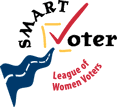What teachers do, the curricula they use and what ultimately happens to kids educationally is based upon decisions that are made. There is a considerable gap between what research says is effective practice, and what actually happens in schools. To improve education, decision making must be sensitive to and driven by research that has prescriptive implications for effective practice.
My education and background as an educator enable me to make valuable contributions in improving the overall educational well-being of RUSD children. I've worked in education for over twenty years at various levels, and I, more than most candidates, have a unique perspective as to what is and isn't effective in K-8 education. I've been there. As a school psychologist I spent over eleven years "in the trenches" with kids, teachers and parents dealing with a myriad of academic, social-emotional and curricular and instructional problems, the kind that exist in most school districts. What I've learned from this experience is that there is a gap between what research has shown to be effective practice and what actually exists in education. Why is this? Educational practice - what teachers do and what kids learn - is usually driven by decision making that is not based on what science says is most effective. In nearly all school districts we see examples of curricula, teaching and discipline methods that have not been shown to be scientifically proven or otherwise tested for effectiveness, yet are adopted willy-nilly at great taxpayer expense. There's a lot of fluff in education that's disguised as effective practice by slick marketing strategies and fast-talking consultants and uninformed educators at the county, state, and federal levels. The smaller districts don't have the resources to wade through all this nonsense and make effective, data-based decisions. Our kids are ethically entitled to effective educational practices, and teachers have a right and a responsibility to use them. Our administrators have the responsibility to provide teachers with tools that are known to be effective, rather than the latest fads that pop up. In the district where I work, I recently developed (and chair) the Research & Evaluation Committee, composed of teachers and administrators, which is responsible for reviewing any proposal that would impact what teachers do or what and how kids learn. Any new reading program, instructional method, discipline program, etc., to be implemented schoolwide or districtwide must be reviewed by this committee to determine its effectiveness prior to adoption. If we are to improve education, as evidenced by higher achievement, this is the approach we must take to get there. Effective practice will result in higher achievement and choosing what is effective should be no accident. As a Rosedale School Board member I can use my education and my background as an educator in working to insure that educational practices in our district have a basis in effectiveness, and that our decision making practices are sensitive to the implications of educational research.
|
